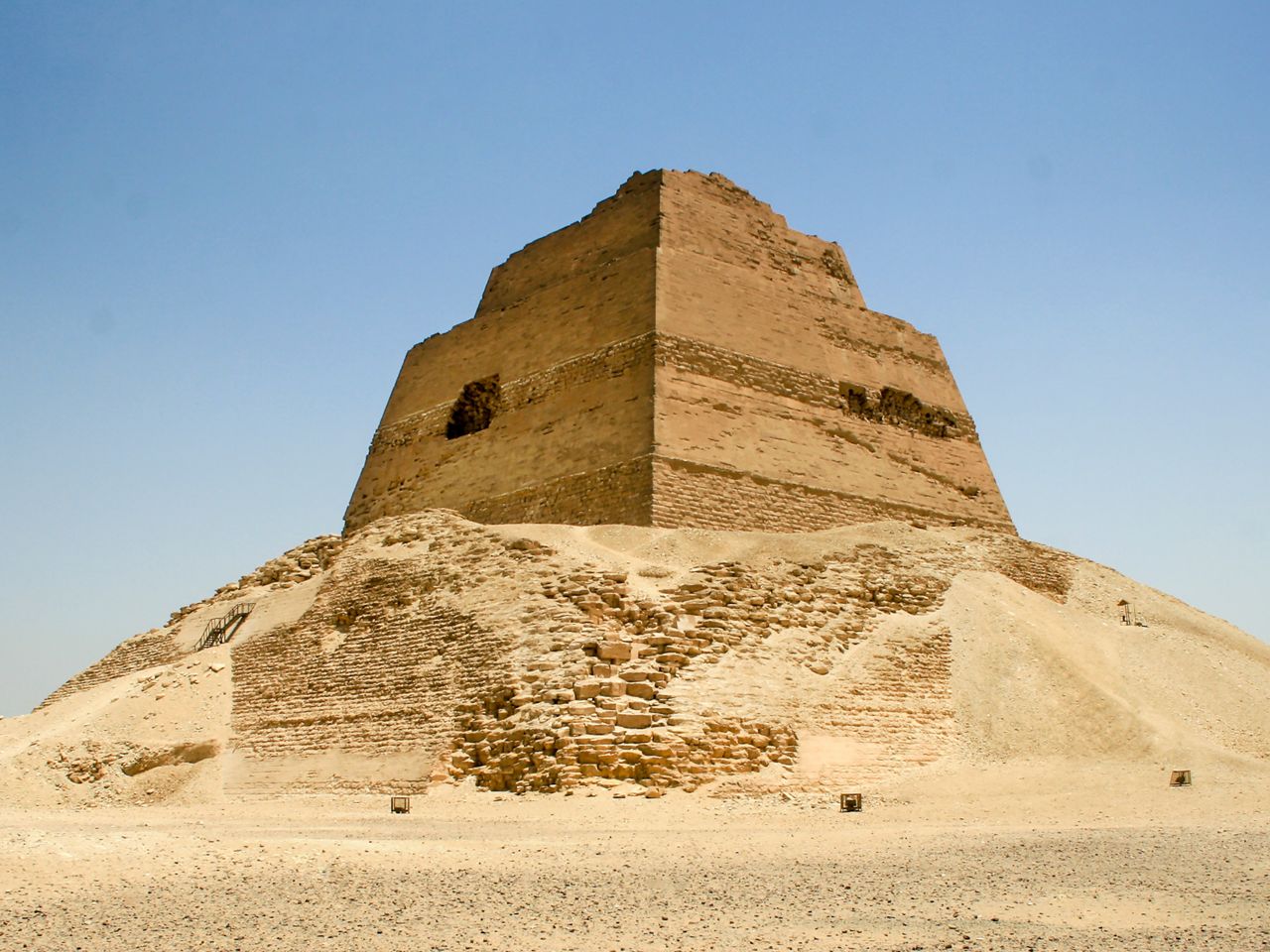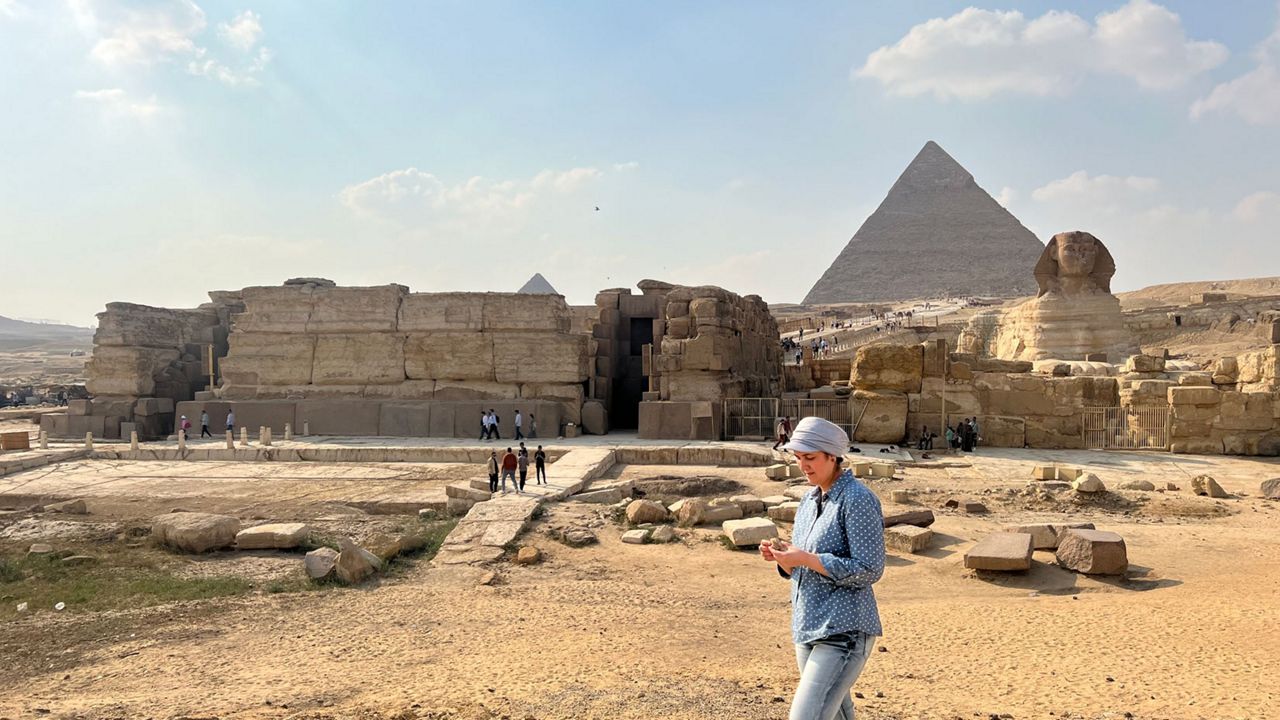A professor from North Carolina plans to lead an international team studying ancient tributaries of the Nile River around the Meidum Pyramid Complex in Egypt.
Eman Ghoneim is a professor of earth and ocean sciences at the University of North Carolina at Wilmington. She won a grant from The Explorers Club and Warner Bros. Discovery to study the Nile River at the pyramid complex.
“Aside from offering insight into the likely reasons for the abandonment of the pyramid in antiquity, this project will enable us to piece together a complete picture of ancient Egypt's former landscape and enable the full story of early inhabitants near the Meidum Pyramid to be told,” Ghoneim said.

“Research of this kind could drastically improve our cultural heritage conservation measures and raise awareness of these ancient sites in the context of modern development planning,” she said in a news release from the university.
The research is focused on the Meidum Pyramid Complex on the Nile River. The site is about 50 miles south of the iconic Great Pyramid of Giza.
“The Meidum Pyramid, built by Pharaoh Snefru, was the first known attempt in Egyptian history to construct a true, smooth-sided pyramid,” according to the university.
One of the goals of the research is to figure out what caused the 4,000-year-old pyramid to partially collapse and why it was later abandoned.
Ghoneim, leading a team from the United States, Australia and Egypt, wants to make the first map of ancient branches of the Nile and see if these waterways were still active when the pyramid was built. The team plans to collect new data from deep soil cores, radiocarbon dating and the physical properties of the area.
Ghoneim is also leading a three-year grant from the National Science Foundation to use satellites to map the historic course of the Nile River near ancient Egyptian archaeological sites.
The new grant is part of a partnership between the Discovery Channel and The Explorers Club. The program funds research, which is documented by the Discovery Channel to potentially be used in a television show.
"The Explorers Club, together with Discovery, is thrilled to have Professor Ghoneim on board as one of our remarkable new grantees," Emerald Nash, director of grants at The Explorers Club, said in a news release from UNCW.
“This unique collaboration with Warner Bros. Discovery was established in 2020 to support innovative field research that is both scholarly in its contributions to science and educational to the public via multimedia offerings through TV, radio and print,” the university said.









